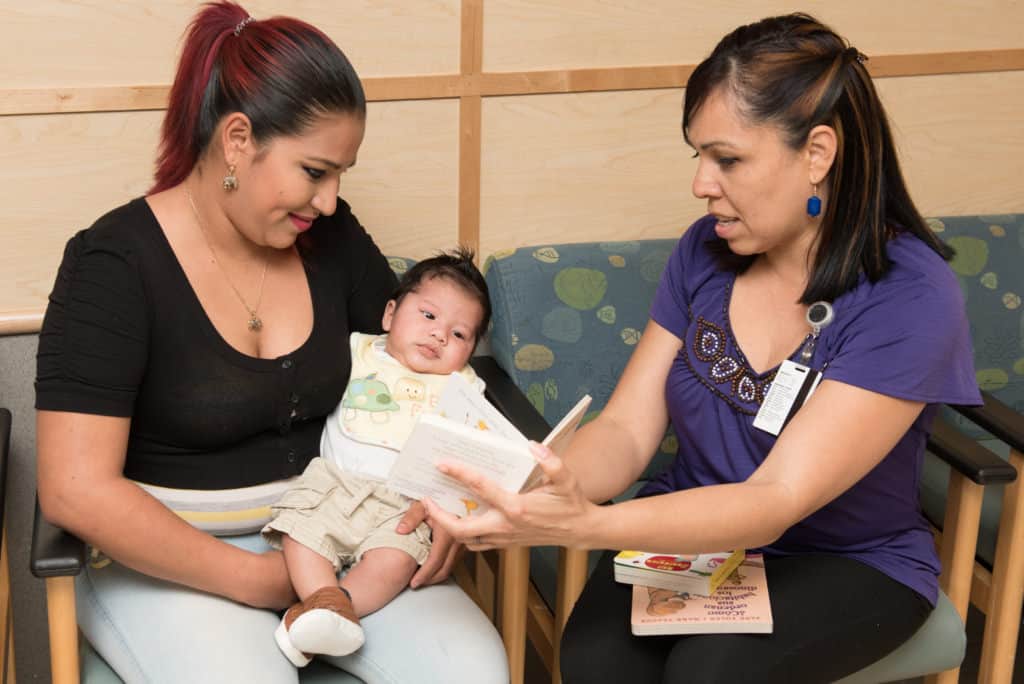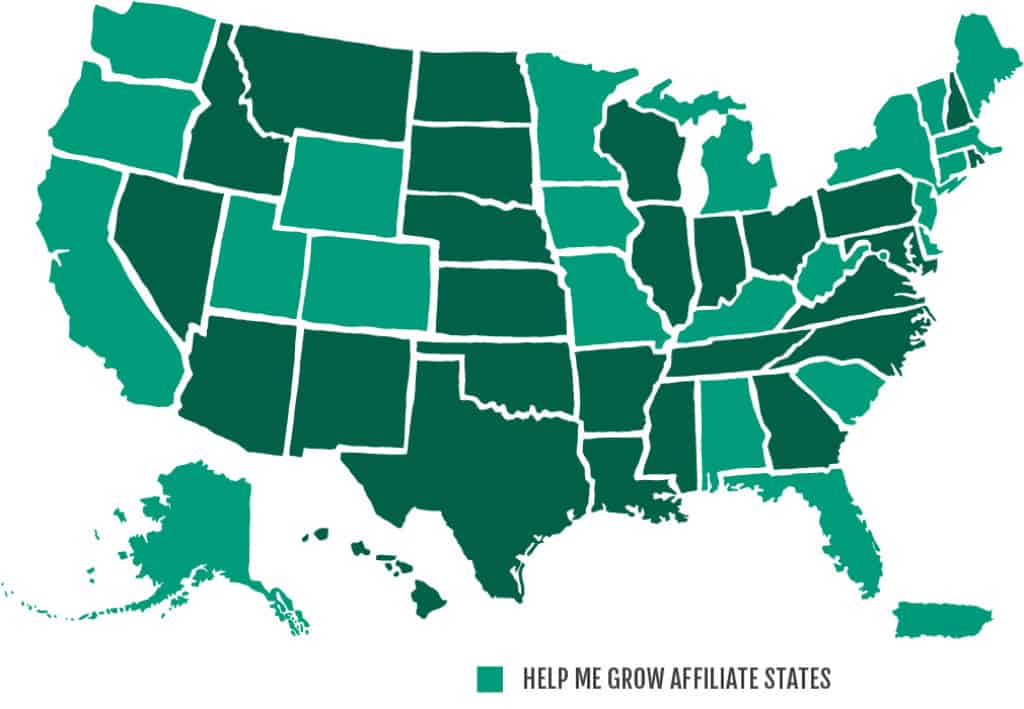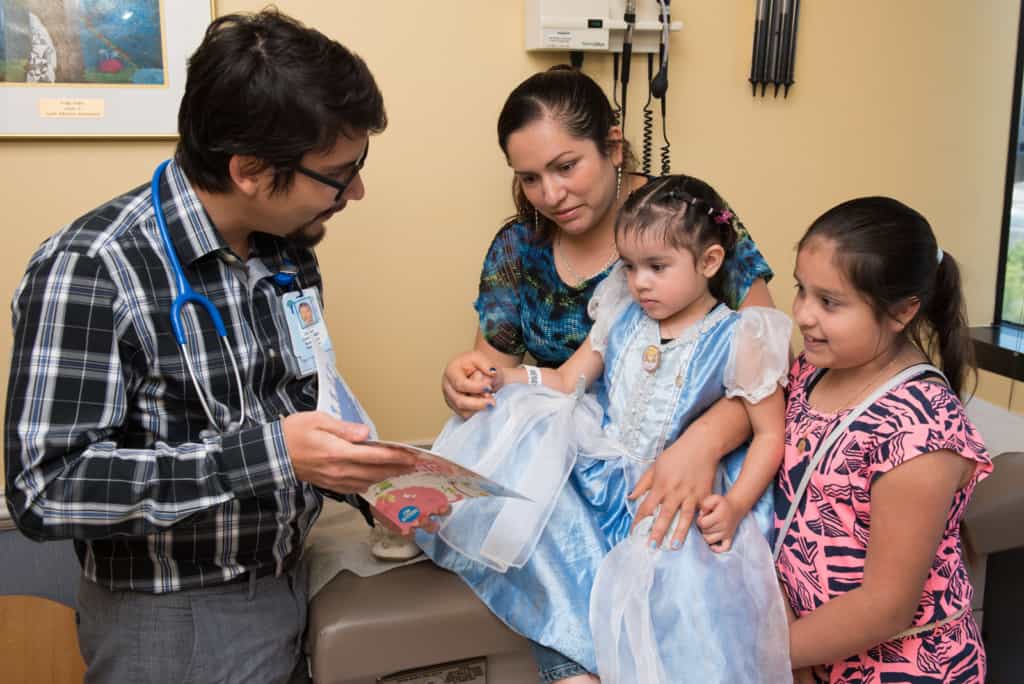Better coordination of services: When you serve families amid a complex matrix of social programs, it is a constant goal. In Forsyth County, an out-of-the-box partnership, supported by Kate B. Reynolds Charitable Trust’s Great Expectations, is leading the way to bring a proven system to North Carolina. Help Me Grow establishes a single phone number to connect people with a trained care coordinator on the other end of the line.
In her recent op-ed for the Winston-Salem Journal, Dr. Laura Gerald, president of the Kate B. Reynolds Charitable Trust, provided insight into the present work of Great Expectations before announcing 2017 funding opportunities. Since the early childhood development initiative launched in summer 2015, diving into understanding existing resources in Forsyth County has been a key priority. “We’ve worked with more than 35 local organizations to create a comprehensive map of services,” explained Gerald.
EdNC has profiled several of these organizations in its “Focus on Forsyth” series. There’s Neighbors for Better Neighborhoods, working to improve Winston-Salem’s most economically disadvantaged areas; or Imprints Cares, engaging parents in their child’s development; and the Work Family Resource Center, which seeks to provide better childcare options.

These local programs all help raise up young families — but before their children enter kindergarten, it can be hard to reach them, and even more difficult to enroll them in social services.
Reach Out and Read, a national program operating across North Carolina, solves the challenge by transforming regular well visits into early literacy intervention opportunities. Healthcare providers at participating clinics begin each patient visit by giving the child an age-appropriate book. In addition to answering questions about baby’s growth, pediatricians give new parents tips for reading together.
What if there was also a phone number healthcare providers could give to ensure families are connected to the right community resources? With support from a two-year Great Expectations grant, Reach Out and Read Carolinas has joined with Help Me Grow to explore implementing this proven system in Forsyth County.

Help Me Grow was first piloted in Hartford, CT, in 1997, and is “is a comprehensive, coordinated system to advance early identification of developmental and behavioral issues and promote referral to needed services, optimizing health and development for all children,” according to HelpMeGrowNational.org. Today, more than 25 affiliate states implement more than 50 Help Me Grow systems across the country.
The key component of Help Me Grow is establishing a single phone number families can call to connect with pre-existing community resources. Once in place, the comprehensive Help Me Grow system includes: child health care provider outreach, community outreach, a centralized telephone access point, and data collection.
“A centralized access point integrally assists families and professionals in connecting children to appropriate community-based programs and services; family & community outreach supports education to advance developmental promotion, and also grows awareness of the system and the services that it offers to families and community-facing providers; child health care provider outreach supports early detection and intervention, and loops the medical home into the system; and data collection supports evaluation, helps identify systemic gaps, bolsters advocacy efforts, and guides quality improvement so the system is constantly becoming better.”
—Help Me GrowWhen a family calls the Help Me Grow number, they are connected to a care coordinator, educated about local programs (in English or Spanish), and successfully registered for the right set of services. In some Help Me Grow communities, transportation and help with screening activities is also available. As Sarah Zucker, program specialist for innovation and collaboration for the Help Me Grow National Center, explains, the Help Me Grow system looks different in every community, and specifics for the Forsyth County model have yet to be determined.
“This kind of variability is one of Help Me Grow’s greatest strengths,” she says. “This flexibility makes the model viable as an early childhood system enhancement approach in any given community.”
Start-up collaborations between Help Me Grow and Reach Out and Read have worked well before. Help Me Grow is now at work in South Carolina, and Reach Out and Read Carolinas was a helpful partner during early conversations. Boulware and her Help Me Grow colleagues saw an opportunity to work together to extend this network into North Carolina.

“The goal of any Help Me Grow system is to build off of the strengths within a given community and relieve the worry of providers and parents about where to turn when there are questions about how a child is learning, developing, or behaving. The intentional focus of Kate B. Reynolds Charitable Trust’s Great Expectations initiative to ensure that children in Forsyth County reach developmentally-appropriate milestones in the first five years, enter kindergarten ready to learn, and leave set for success in school and life, is a great fit with the Help Me Grow system model,” says Kimberly Martini-Carvell, executive director of the Help Me Grow National Center.
Forsyth County seemed like the right place to begin. “I believe the work happening in Forsyth with Great Expectations will change the landscape of opportunity for families with children who are concerned about their child’s early development,” explains Martini-Carvell.

The activating agency for projects funded by Great Expectations, Durham-based MDC, facilitated a series of exploratory community conversations in Forsyth County during 2016. Smart Start of Forsyth County, which already had a strong partnership with Reach Out and Read Carolinas, was essential in building community connections. “The Forsyth County Smart Start has always been one of the first to raise their hands and say we believe in the Reach Out and Read model. We want to embed this in our work. We want to support our doctors in our community,” Boulware explains.
Boulware admits the partnership between Reach Out and Read and Help Me Grow is, as she says, “out-of-the-box.” These national networks can, after all, compete for funding or policymakers’ attention. With their deep knowledge of the local early childhood sector, Jackie Lofton, director of advancement and professional outreach, and her colleagues were consulted on which community stakeholders should participate in early talks.
“We knew [this initiative] was not something [Smart Start] can own,” Lofton explains. “There are aspects of it that need to be housed somewhere, but that’s not up to one entity. We wanted this to be a true collaboration with community buy-in.” Facilitation by third-party partner MDC helped people “let go of some of the ‘turfism’ that we sometimes suffer from,” she added.
“One of the strengths of Help Me Grow is its ability to strategically leverage existing collaboration and resources to improve a community’s early childhood service system,” says Cate Elander, program manager for MDC.
“For example, a Help Me Grow system in Forsyth County would leverage Reach Out and Read’s strong connections with both physicians and families with young children to improve referrals to existing community resources.” Elander adds, “the community stakeholders involved in the planning process are enthusiastic about a system that amplifies the good work happening in Forsyth County to help all children start school ready to learn and leave set for success.”
Momentum around Help Me Grow is building around Winston-Salem. Now in its second-year, MDC, Smart Start of Forsyth County, and The Forsyth Promise have teamed up to plan for implementation and coordinate ongoing conversations.
The goal is that by early 2018, Forsyth County will be ready to implement Help Me Grow. The Reach Out and Read provider network will be an early activator for Help Me Grow referrals.

The potential for impact is immense. Statewide stakeholders are watching implementation in Forsyth County and may decide to pursue transforming current 211 systems into a single-entry Help Me Grow coordinated service portal. If this becomes a reality, lessons learned in Forsyth will be invaluable.
“Because of our conversations in Forsyth County, other counties and statewide leadership are watching and learning from this scenario,” says Boulware. “Everyone always wants to see someone else try something first, but if I had to land on it, I think the Help Me Grow system will come to North Carolina.”
Imagine a network of services so tightly coordinated, no family can slip through its holes.
Recommended reading



